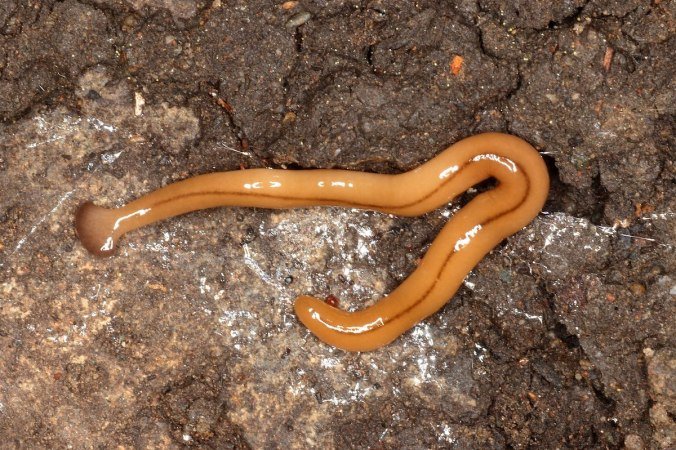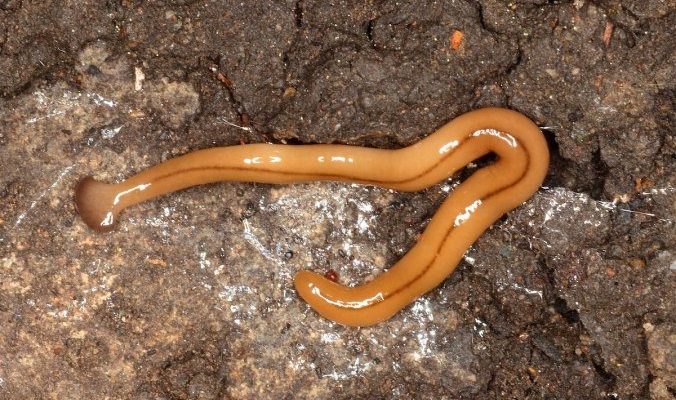
Think of it this way: it’s like planning a little defense strategy for your garden. Picture your garden as a castle, and the hammerhead worms are the unwelcome guests trying to crash the party. You want to set up barriers and attract friendly allies that will help fend off these intruders. So, how do you get started? Let’s dive into some simple yet effective natural methods to tackle this issue head-on.
Understanding Hammerhead Worms
Before we get into the solutions, it’s helpful to know exactly what hammerhead worms are. These worms, native to tropical regions, are easily recognizable by their flattened heads that resemble a hammer. They can grow quite large, often reaching lengths of up to 12 inches, and their unique look can make them quite unsettling.
Hammerhead worms are predators that primarily feed on earthworms and other small invertebrates, which can wreak havoc on the soil health in your garden. Unlike typical garden worms, which aerate the soil and contribute to nutrient cycling, hammerhead worms do the opposite. Their presence can lead to decreased soil fertility and health, impacting plant growth. So, understanding who you’re dealing with is the first step in crafting your defense.
Create a Mulch Barrier
One of the simplest ways to reduce hammerhead worm numbers is to create a mulch barrier. Organic mulch, like straw, wood chips, or leaves, not only helps retain soil moisture but also acts as a protective layer against these invaders.
When you spread mulch around your plants, it creates a physical barrier that can make it more difficult for hammerhead worms to reach your soil. Additionally, beneficial bugs—like ladybugs and beetles—are attracted to mulched areas. These helpful insects can naturally keep the hammerhead population in check, creating a balanced ecosystem.
To set up your mulch barrier:
- Choose organic materials suitable for your garden.
- Spread a 2–3 inch layer around your plants, avoiding direct contact with stems.
- Refresh the mulch as it breaks down to keep your barrier effective.
Encourage Natural Predators
Another effective strategy is to **encourage natural predators** in your garden. Birds, toads, and certain beneficial insects enjoy snacking on hammerhead worms. You can attract these predators by creating a welcoming environment.
Consider adding features like bird feeders, birdbaths, and small ponds. Planting a variety of flowers can also draw in insects like wasps and ladybugs, which might help control hammerhead populations. It’s like throwing a little party to invite your pest-fighters over!
Here’s how to invite these allies:
- Install birdhouses and feeders to attract birds.
- Plant native flowers that provide nectar and habitat for beneficial insects.
- Keep areas of your garden a bit wild; overgrown spots can provide shelter for toads.
Use Coffee Grounds
Here’s the thing: hammerhead worms don’t like coffee grounds. Many gardeners swear by this simple solution! Coffee grounds can create an environment that’s less hospitable for these pests while also adding nutrients back into your soil. If you’re a coffee drinker, this is a perfect way to recycle those grounds.
Just sprinkle used coffee grounds around your garden beds. It’s like sending out an eviction notice to the hammerheads! The grounds will break down over time, enriching your soil and helping to fend off these squiggly foes.
To use coffee grounds effectively:
- Collect used coffee grounds from your home or ask local cafés for theirs.
- Spread a thin layer around your plants, mixing it lightly into the soil for best results.
- Reapply every couple of weeks for ongoing pest control.
Plant Companion Species
Companion planting is another clever approach to reduce hammerhead worm populations. Some plants can deter pests naturally while also benefiting your garden’s health. For instance, planting **marigolds** can help repel various insects and may also discourage hammerhead worms from settling nearby.
When you mix certain plants together, think of it as a well-orchestrated team where each player has a role. Herbs like basil and mint, while also useful in the kitchen, can serve as barriers against pests.
Consider these companion strategies:
- Plant marigolds next to your vegetables to create a natural deterrent.
- Incorporate herbs that are known for pest-repelling qualities, like mint and rosemary.
- Try intercropping different plant varieties to confuse and deter pests.
Regular Garden Maintenance
Consistent garden maintenance is crucial for reducing hammerhead worm numbers. Regularly check your garden for signs of these invaders, such as unexplained decreases in earthworm populations or odd-looking soil conditions.
Keeping your garden tidy can also deter these worms from setting up camp. Remove any decomposing organic material or excess debris where hammerhead worms might thrive, and be careful not to overwater, as excessive moisture can create favorable conditions for them.
Here’s how to stay on top of your garden game:
- Inspect your garden regularly for pests.
- Clean up fallen leaves and debris that can provide shelter for hammerheads.
- Avoid overwatering and create proper drainage to keep the soil less hospitable.
Taking on hammerhead worms might feel like a daunting challenge, but by implementing these effective natural plots, you can significantly reduce their numbers and protect your garden’s health. Think of your garden as a vibrant community—every action you take plants the seeds of balance and sustainability.
Using methods like creating mulch barriers, encouraging natural predators, employing coffee grounds, companion planting, and committing to regular maintenance can transform your garden into a thriving haven. By understanding and introducing these natural solutions, you’ll help your garden flourish while keeping those pesky hammerhead worms at bay. So, grab your gardening gloves and get started! Your plants (and the earthworms) will thank you.

